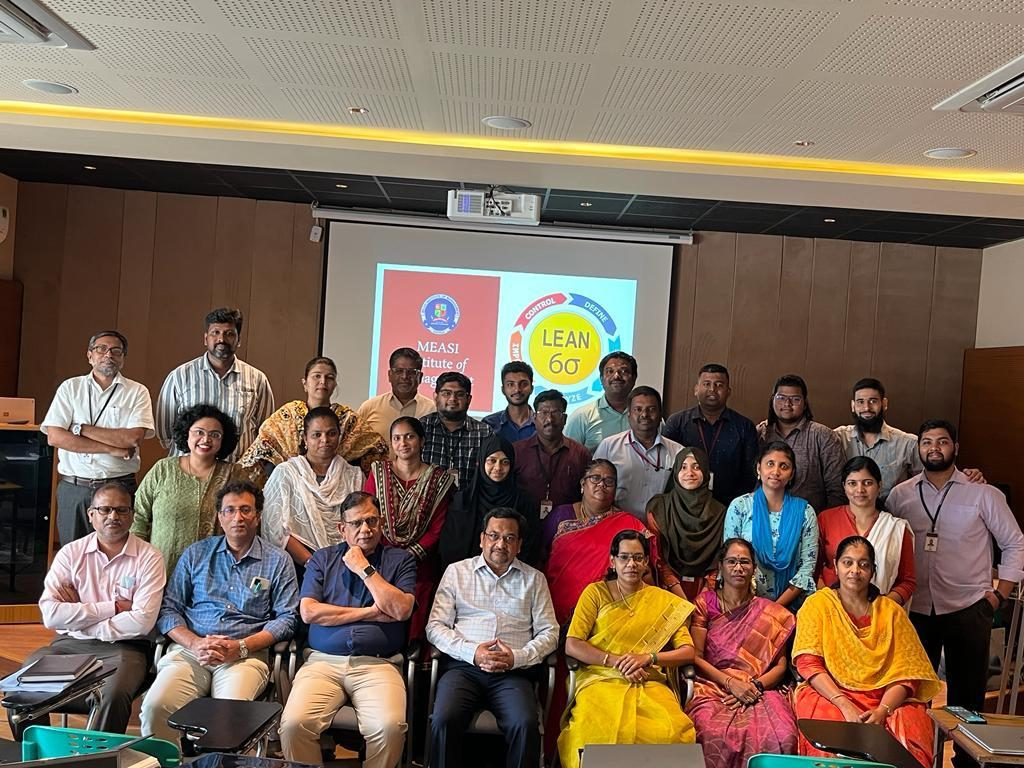FDP ON LEAN SIX SIGMA
FDP ON LEAN SIX SIGMA
The Faculty Development Program (FDP) on Lean Six Sigma is designed to provide participants with a comprehensive understanding of quality management principles, Lean methodology, and Six Sigma techniques aimed at operational excellence. The program typically covers the DMAIC (Define, Measure, Analyze, Improve, Control) framework in depth, along with various tools and techniques such as SIPOC, Project Charter, Control Charts, Hypothesis Testing, and Risk Analysis.
Key Highlights of Lean Six Sigma FDP
- The FDP educates participants on advanced Lean Six Sigma components in a sequential manner, emphasizing the integration of Lean waste reduction and Six Sigma’s focus on defect reduction.
- Sessions include detailed explanations of each DMAIC phase and its associated tools, practical case studies, and group activities to enhance understanding.
- Recent trends covered include VUCA (volatility, uncertainty, complexity, and ambiguity) in operations, sustainability approaches, and behavioral analysis related to process improvements.
- Participants also learn project management aspects such as tollgate reviews and project closures, ensuring they can lead and execute Lean Six Sigma projects successfully.
Participants and Outcomes
- The program is suited for faculty, researchers, and professionals seeking to build expertise in process improvement and quality management.
- Participants gain practical skills to apply Lean Six Sigma principles in academic, industrial, and organizational settings for continuous improvement.
- Successful completion often prepares attendees for certification levels such as Yellow Belt, Green Belt, or Black Belt in Lean Six Sigma.
Overall, the FDP enables participants to become proficient problem-solvers and change agents who can drive quality improvement and operational excellence initiatives effectively in their respective domains.


